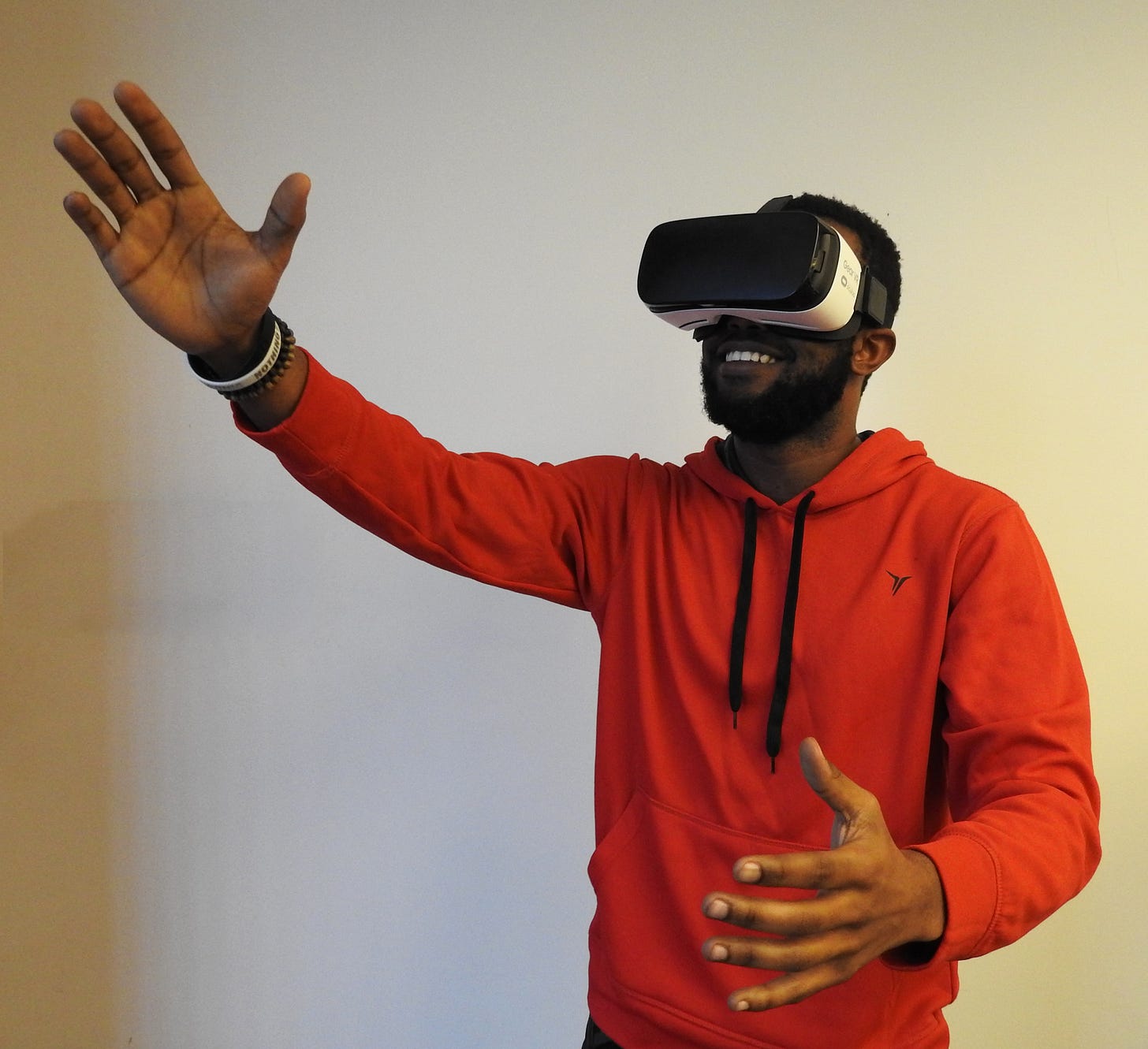The Metaverse
What is that?
The term “Metaverse,” is a portmanteau word, containing “Meta” (meaning beyond) and “verse” (shortened from universe). It refers to a future form of the Internet, where we won’t just be observing content, but we will be in it through connections made in persistent, shared, 3D virtual spaces.
Have you seen those Virtual Reality headsets made by Oculus? The idea is that we will put those on, and interact with each other in virtual spaces. This sort of thing already happening - you can attend a Billie Eilish concert that way, and feel like you are actually there. That’s pretty cool, I have to admit.
There is a tremendous amount of investment being made right now into VR technology. Yes, so far it is of the Venture Capital burn cash to see if there’s anything there type of “money.” But Oculus is owned by Facebook. They bought it in 2014 for $2 Billion. Need I say more?

The question in my mind today is what relevance to us as teachers do these developments have? Can we teach a class that doesn’t exist in space, but everyone (teacher and students) are “together” in a virtual space simulated by VR headsets?
My first response to these self-imposed questions is: yawn. We are already doing this, and have been for some time. Even before the pandemic, but over the last 18 months this has accelerated. It is Zoom as our platform now, but VR Headsets may be the platform of the future.
The second response is to wonder about what aspect of the VR environment would make it more or less conducive to teaching in a virtual space than Zoom? I do not know the answer obviously. I am not sure anyone does. But experiments will happen, and probably soon.
The third response is to ask: should they? Is there a line we should draw in the sand to say - no, that’s not teaching. We won’t do it. Or should we jump on yet another major technology bandwagon and see what it offers us as teachers?
(Let’s put aside here for the moment the impracticality of wearing such a device on your head all day long. Perhaps over time these devices won’t be so objectively ridiculous looking).
On the one hand, it is a technology, just like any other. Thus, it is likely it will be adopted in the same sort of cycle technology usually is: initial resistance, acceptance by the adventurous few, then the middle group of skeptics gets won over, and then finally the laggards come along. And lagging far behind, unfortunately, will be those many who can not afford it, and the tech creates yet more have/have nots divisions in our society.
My additional worry is that - just like Zoom and online courses before it - we will be tempted to think we no longer need to be together in physical space. VR might make that even more enticing, more tempting. But hybrid is the future. We still need to get together. If - when we are working on a problem set together we are virtually together through VR headsets, so what? The quality of that interaction may be “better” or more “real” than Zoom, but it will never replace actually being together in real physical space. We need to maximize the time we are together, and also maximize the technology - whatever technology - to do what it can to help us effectively reach students wherever they are.
Letters of Recommendation
The writer Michael Pollan, perhaps best known for The Omnivore’s Dilemma, has a new book out. It is about his garden, and is called Second Nature, A Gardner’s Education. If you have a garden, or would like to, you will enjoy this beautiful book.
Q of the Week
The Q of the Week this week is a Quote from David Byrne, lead vocalist of The Talking Heads, avid cyclist, and walking genius:
We are not atomized entities. Being together with other people is such a big part of what we are as individuals.


Have you read Neal Stephenson? He has a pair of novels, Snow Crash (1992) and The Diamond Age (1995) that indirectly speak to this post, not least because Snow Crash was one of the first examples of the metaverse being a plot device (it was treated as the logical next step in many dystopian cyberpunk stories). In the second novel (not actually a sequel, but thematically so), education is directly addressed.
One of the protagonists, a young girl, is given a "book" that we might recognize today as a tablet. Through the novel we come to see that the lessons are largely chosen by her and the software re-writes the curriculum on the fly based on her interests and immediate learning needs. Lots of other bits and pieces of detail arise throughout the story - like the book choosing to show video in order to teach the girl how to defend herself and voice actors being hired by the book to bring the educational stories to life - all of which come together to present an eerily prescient vision of what A.I. / Metaverse driven education could look like.
It's fascinating to see how close reality has come to a twenty-five-year-old science-fiction novel; it's illuminating to see ideas of just what this could all be. And both novels are just really good reads, too.